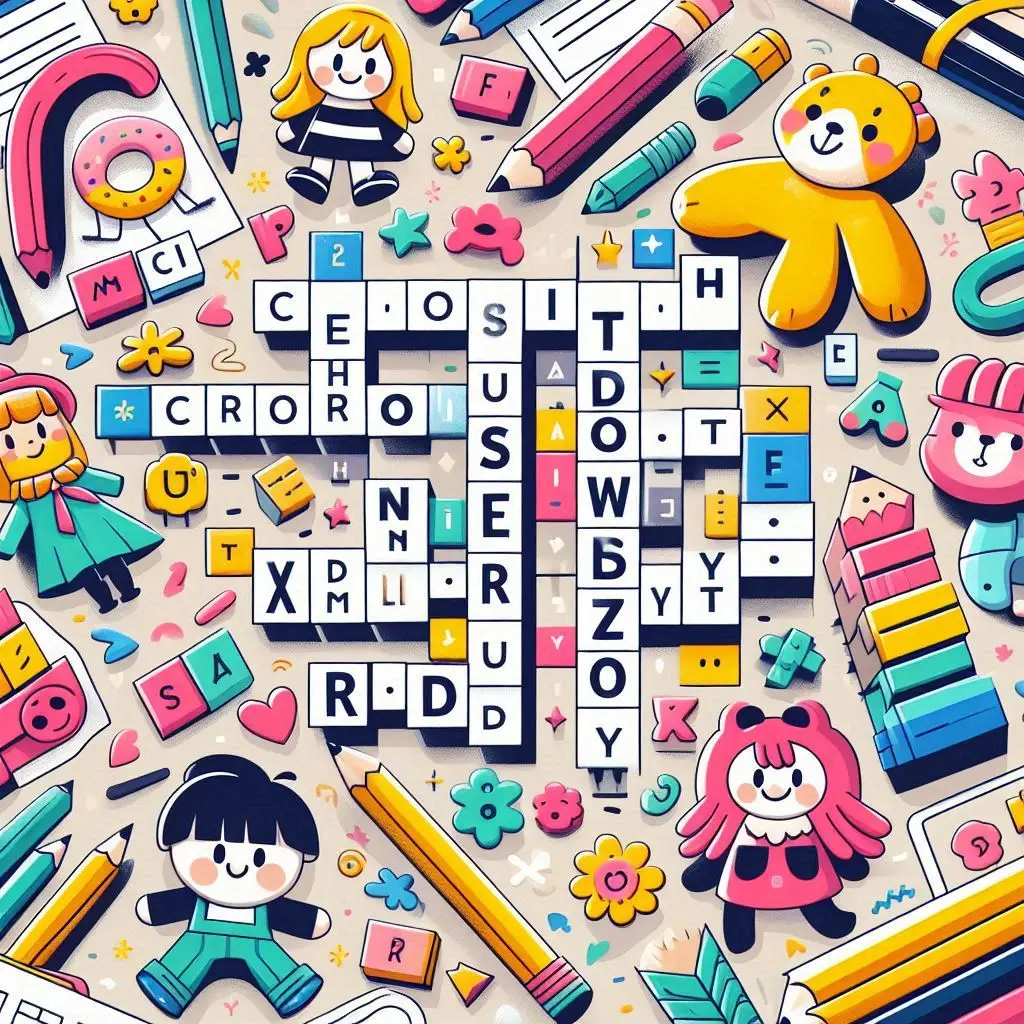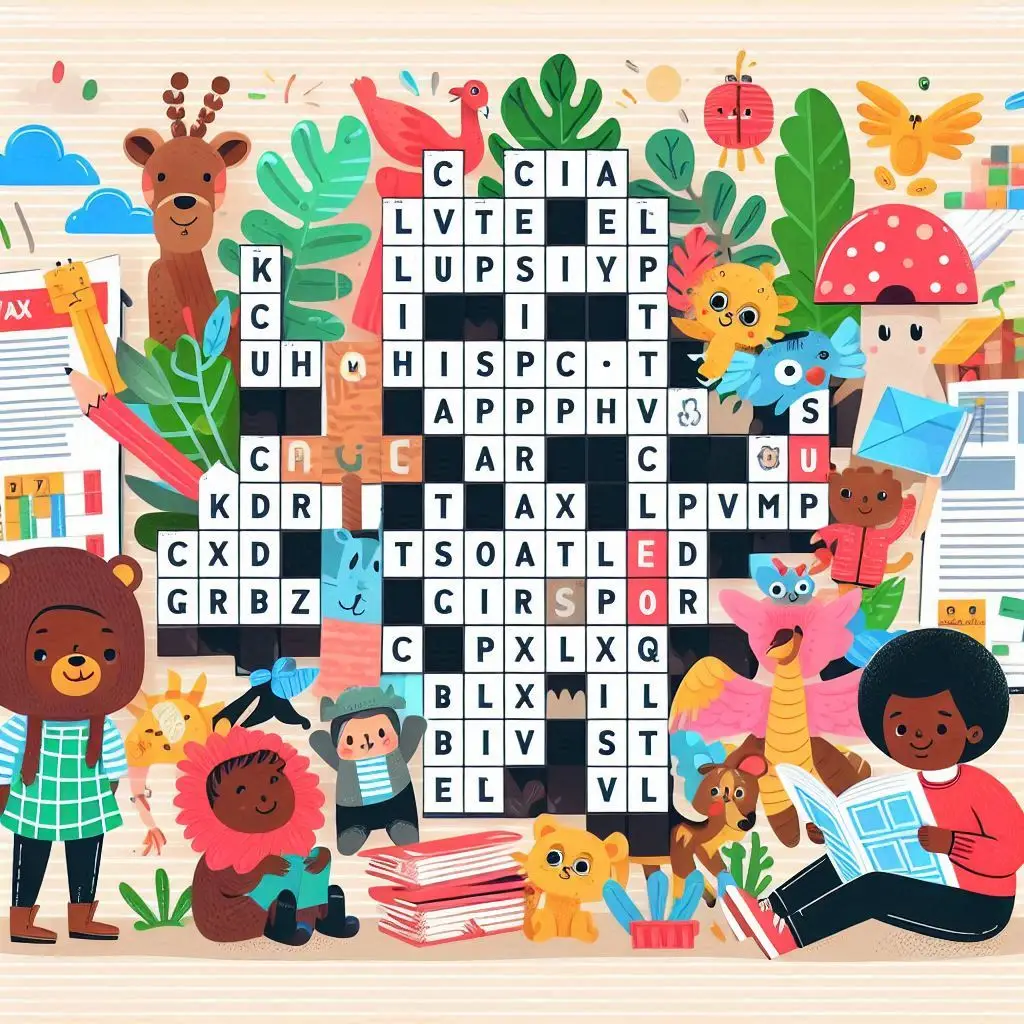Crossword puzzles are more than just a pastime; they are a powerful tool for cognitive development, vocabulary building, and critical thinking. Simple crossword challenges for kids and adults provide a perfect starting point for players of all ages, offering a blend of fun and learning. Unlike complex crosswords that can frustrate beginners, easy puzzles are designed to engage, educate, and entertain simultaneously. Here are three key strategies to make the most of easy crossword puzzles for both children and grown-ups.

1. Choose Age-Appropriate Keywords and Themes
The first principle in making crossword challenges effective is selecting keywords that match the player’s age and familiarity. For children, themes like animals, colors, fruits, and everyday objects work best. Adults may enjoy general knowledge, hobbies, or seasonal topics.
Practical Approach:
- Start with puzzles that use short, familiar words to boost confidence.
- Gradually introduce slightly longer or themed words as players progress.
- Ensure the clues are clear and relatable to the player’s knowledge base.
Impact:
Selecting age-appropriate keywords enhances engagement and reduces frustration. Kids learn new vocabulary in context, while adults sharpen memory and problem-solving skills. In both cases, easy crossword puzzles serve as an educational yet enjoyable activity, reinforcing word recognition and cognitive patterns.
2. Encourage Collaborative Solving and Cross-Checking
One of the best ways to enjoy simple crossword challenges is to solve them collaboratively. Working in pairs or groups allows players to discuss clues, suggest answers, and cross-check letters in intersecting words. This is particularly useful in easy crossword puzzles, where the grid’s design often allows one correct answer to reveal hints for other words.

Practical Approach:
- Kids can solve puzzles with parents or peers, sharing ideas and learning together.
- Adults can work with friends or colleagues, turning the puzzle into a casual social activity.
- Always encourage checking intersecting letters to validate answers before filling the grid completely.
Impact:
Collaboration enhances problem-solving skills, reinforces learning, and makes the experience more engaging. It also introduces the habit of logical deduction, as players learn to use available letters to infer correct words. For both children and adults, this approach transforms easy crossword puzzles into a shared, confidence-building challenge.
3. Use Puzzles to Build Incremental Skills and Celebrate Achievements
The true power of simple crossword challenges for kids and adults lies in progressive learning. Starting with very easy puzzles builds foundational skills, while slightly more difficult puzzles gradually increase vocabulary, comprehension, and reasoning. Celebrating even small achievements motivates continued participation and learning.
Practical Approach:
- Begin with puzzles that have fewer words and straightforward clues.
- Track progress over time and gradually introduce longer words or themed puzzles.
- Celebrate completions with small rewards or recognition to encourage persistence.
Impact:
Incremental skill-building ensures that players of all ages remain motivated and engaged. Kids gain confidence in reading and spelling, while adults keep their cognitive abilities sharp. Each completed easy crossword puzzle acts as a milestone, reinforcing positive learning behaviors and the joy of solving problems.
Simple crossword challenges for kids and adults are more than a casual activity — they are an engaging way to develop language, reasoning, and critical thinking skills. By choosing age-appropriate keywords, encouraging collaborative solving, and building skills incrementally, players can enjoy the full educational and entertainment value of easy crossword puzzles.
These puzzles provide a unique intersection of learning and fun, making them suitable for classrooms, family time, or solo brain exercises. They turn every filled square into a small victory, fostering confidence, curiosity, and a lifelong love for word games.